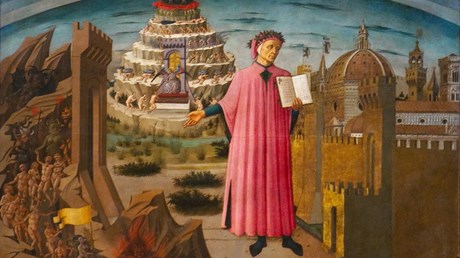Pew’s afterlife survey also asks 6,500 people about universalism, reincarnation, fate, answered prayer, and interacting with the dead.

Many American evangelicals love C. S. Lewis’s writings yet balk at his depiction in The Last Battle of Emeth, the soldier who gets to enter Narnia’s heaven despite having followed the god Tash and not Aslan the lion.
Yet such theological inclusivism (often misrepresented as universalism) is now supported by a quarter of evangelicals and a majority of mainline Protestants and Catholics, according to a new Pew Research Center survey.
Most Americans more or less believe that “hell is other people” (apologies to Sartre), according to Pew’s pandemic-inspired study, released today, on suffering and the problem of evil.
Yet when it comes to the actual hell and heaven, in the same survey Pew found “many Americans believe in an afterlife where suffering either ends entirely or continues in perpetuity.”
Pew surveyed 6,485 American adults—including 1,421 evangelicals—in September 2021 about the afterlife, specifically their views on heaven, hell, reincarnation, fate, prayer, and other metaphysical matters.
Today 73 percent of Americans believe in heaven while 62 percent believe in hell, similar to 2017 when Pew last asked the questions.
Meanwhile, 1 in 4 Americans don’t believe in heaven or hell. Instead, 7 percent believe in “a different kind of afterlife” while 17 percent don’t believe in any afterlife.
According to Pew researchers:
The vast majority of those who believe in heaven say they believe heaven is “definitely” or “probably” a place where people are free from suffering [69%], are reunited with loved ones who died previously [65%], can meet God [62%], and have perfectly healthy bodies [60%]. And about half of all Americans … ...
from Christianity Today Magazine
via

.gif)

.gif)

.gif)
.gif)
